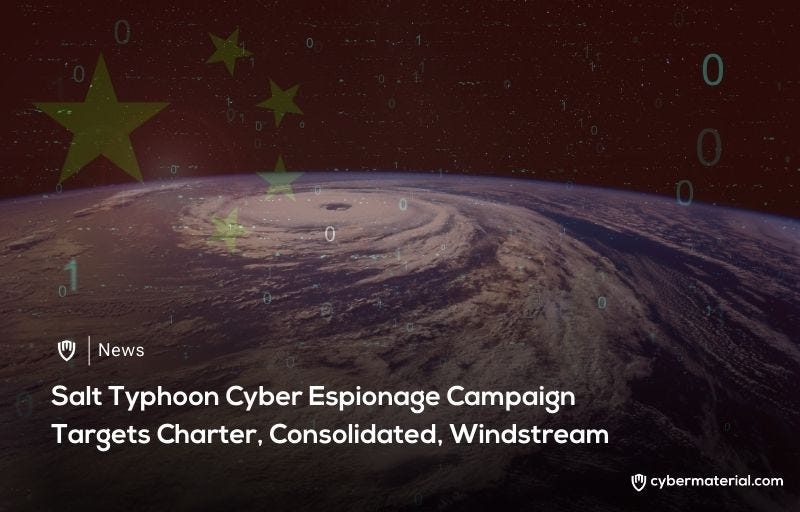
The Salt Typhoon cyberattack, linked to Chinese government-backed hackers, continues to target American telecommunications companies. Recent reports have revealed that additional firms, including Cha…

The Salt Typhoon cyberattack, linked to Chinese government-backed hackers, continues to target American telecommunications companies. Recent reports have revealed that additional firms, including Cha…